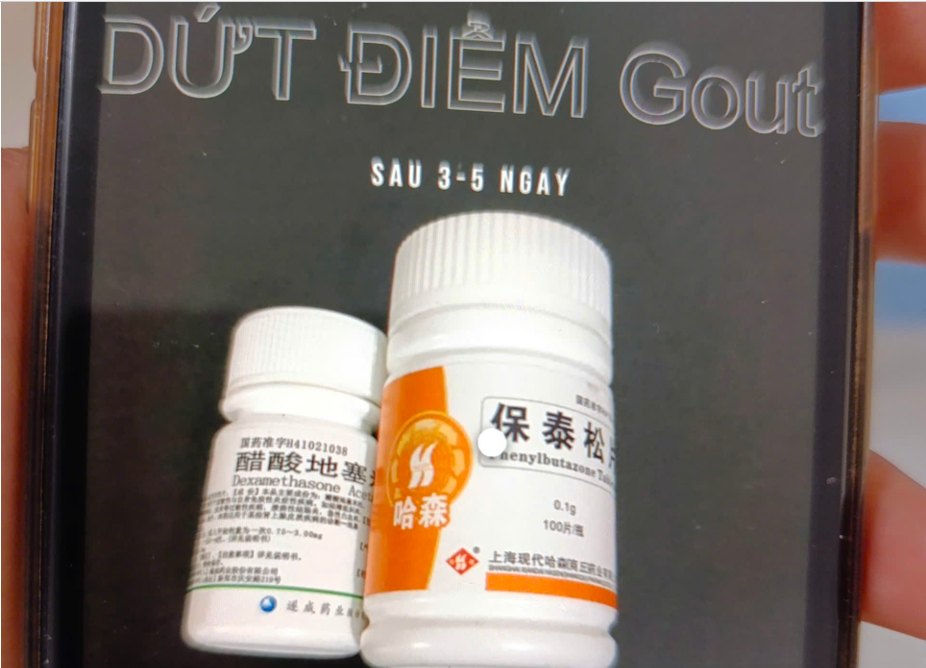On 19/8, the DAV issued the warning following several cases of severe allergic reactions treated at Bach Mai Hospital in Hanoi. The patients had used products containing phenylbutazone after seeing advertisements on social media. These products, purchased online from unknown sources, were not approved for circulation in Vietnam. Patients experienced serious complications including high fever, rash, bleeding, acute liver failure, and in some cases, death.
Phenylbutazone, a non-steroidal anti-inflammatory drug (NSAID), was banned by the Ministry of Health in 2013. The ban was due to the risk of severe, life-threatening allergic reactions such as drug reaction with eosinophilia and systemic symptoms (DRESS syndrome), characterized by high fever, widespread rash, and damage to internal organs (liver, kidneys, heart, and lungs). It can also cause Lyell's syndrome (toxic epidermal necrolysis), marked by severe skin peeling resembling burns, infections, and multiple organ failure. Additional adverse effects include bone marrow suppression, gastrointestinal bleeding, and acute kidney failure.
A DAV representative confirmed that no phenylbutazone-containing products are currently authorized for sale in Vietnam. The agency has not permitted the import of raw materials or finished products containing this active ingredient.
The DAV has strongly advised businesses and individuals against buying, selling, or using any products containing phenylbutazone. People should also avoid products from unknown sources or those without proper authorization.
The DAV urged anyone encountering products containing phenylbutazone to immediately report them to their local health department for prompt action.
 |
The banned drug purchased online by patients. Photo: Hospital provided |
Local health departments are tasked with informing the public against purchasing medications based on word-of-mouth or through websites and social media. They are also instructed to guide people to licensed healthcare facilities for proper medical consultation and medication purchases.
Furthermore, health departments are collaborating with relevant authorities to increase inspections and strictly penalize the trade of medications from unverified sources, particularly those advertised online in violation of regulations.
Businesses and hospitals with websites are required to review posted information and remove any non-compliant advertisements for products containing phenylbutazone. This is crucial to avoid the misperception that these products are approved for use. These facilities must strictly adhere to regulations regarding drug sales, especially concerning origins and sources, the DAV emphasized.
Le Nga












